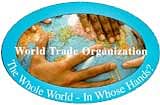
“The effort by India to hold a two day mini-ministerial meeting here beginning from September 3 is a positive signal to get Doha round moving once again,” the WTO Deputy Director General Harsha Vardhana Singh said while addressing an interactive meeting with the Federation of Indian Chambers of Commerce & Industry (FICCI). The mini-ministerial WTO meeting is expected to bring together trade ministers from nearly 40 developed and developing countries to iron out differences in perceptions and lay the groundwork for successful outcome of the Doha Round of trade negotiations.
“World leaders at various forum have emphasised a successful result for Doha negotiations because they see the positive contribution that improved international trade and multilateral trade regime will make to economic recovery and stable conditions in the world,” he said.
Singh said that the Doha negotiations show that there is no single cohesive group comprising developing countries, whether it is the area of agriculture, industry or services.
“There are different concerns and interests, and countries more and more now align themselves in terms of these substantive concerns rather than merely political groupings as such. I see this as generating a more focused position which is more responsive to each nation’s key interests,” he said.
Conducive effort
The lessons from the Doha negotiations suggest that no single country can today impose its will on others, “nor should we expect cohesive groupings along the lines of developed and developing countries. This also implies a need for various countries to work together,” the WTO official said. He said India’s concerns about subsistence farmers would be addressed through a set of flexibilities which would be an integral part of the final deal, reflecting various types of equity concerns. Specifically, these are the flexibilities provided to developing countries through special products and special safeguard mechanism for agricultural products.
The Doha round of trade negotiations is now faced with the daunting task of striking a balance between the divergent demands of developed and developing countries on sensitive agricultural issues.
While developed countries are seeking greater market access in developing countries for selling their agricultural products, the developing countries are demanding protection of basic livelihood of their farming community before opening up their markets to global competition.